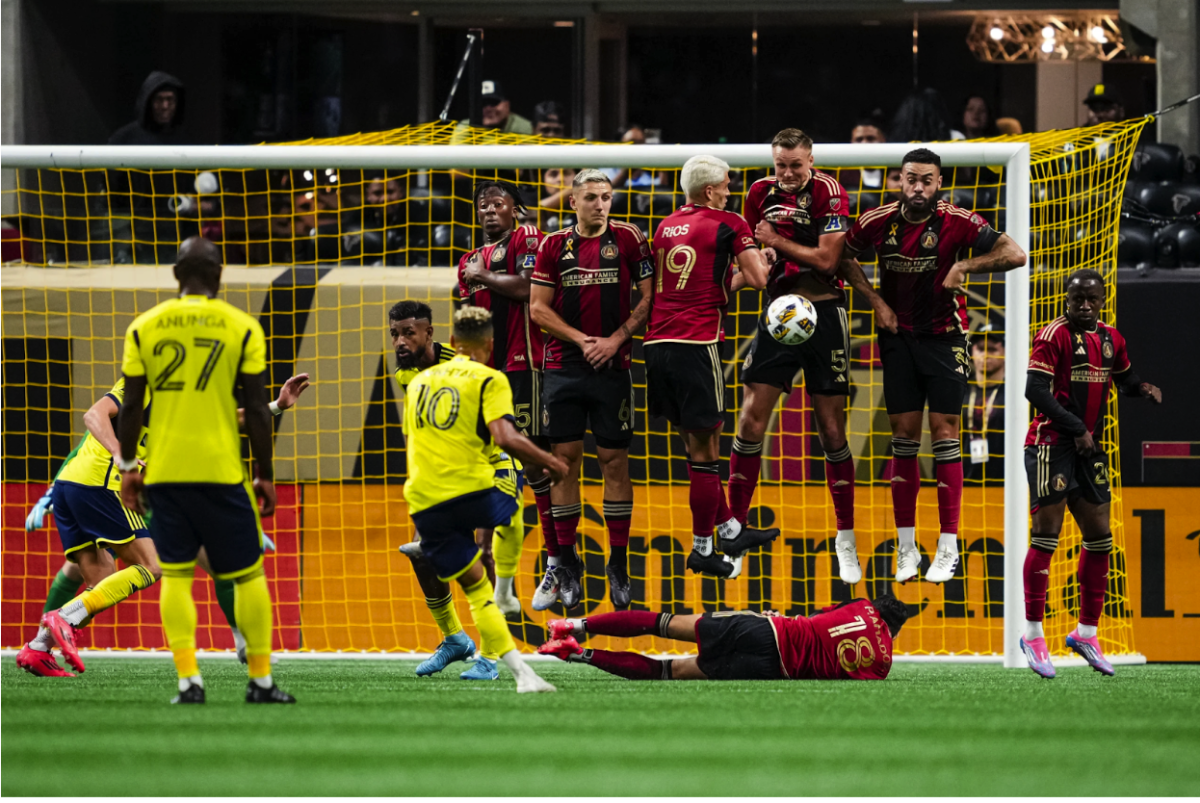Atlanta United entered Major League Soccer (MLS) in 2017 and immediately set the standard as a model franchise, boasting a world-renowned coach in Tata Martino, the highest attendance in the league, an extravagant new stadium, and a lively counter attacking play style. In just the team’s second season, it dominated to a 2018 MLS Cup title, led by MVP striker Josef Martínez and dynamic attacking midfielder Miguel Almirón. The following year—despite the departures of Martino and Almrión—Atlanta United maintained their position as contenders and even won two adjacent trophies: the U.S. Open Cup and Campeones Cup. As a young diehard fan, I naively began to believe that Atlanta United’s reign of glory would last my entire life.
But unfortunately, I was very mistaken. In the first game of the 2020 season, franchise cornerstone Josef Martínez tore his ACL against Nashville SC. This injury was the start of the team’s fall from grace. Atlanta United labored to a spot at the bottom of the table, a drastic change from the three trophies won the first two years. Since Martínez’s injury, Atlanta United has been a floundering franchise. Not only have they not achieved a playoff win in four seasons, but reaching the playoffs has lately been more of a challenge than a formality. Atlanta United is no longer admired by other fan bases; we are now the laughingstock of the league as a case study of management incompetency.
Atlanta United’s downfall can be attributed to several factors, but the blame must be assigned to the executive office and a series of poor organizational decisions. Atlanta United is frequently one of the top spenders in MLS, yet the quality of the roster is not indicative of the financial input from owner Arthur Blank. Players who made zero impact on winning were handed huge contracts, while fan favorites from those early title-winning teams like Julian Gressel and Tito Villalba were forced out when they sought the money they deserved. Simultaneously, the team is painfully unable to find a proficient coach, cycling through six coaching terms in the past five years. In other words, recent front-office decisions have offered no sense of direction, intention, or capable management.
In turn, Atlanta United has suffered from a lack of coherency and consistency. Along with a new coaching hire, fans are annually introduced to a new team, making it difficult to foster fan familiarity and a clear team culture. My mom, a casual supporter, often jokes about how she doesn’t even know half the roster anymore due to the sheer number of roster changes. This reality is due largely to the team’s roster-building model. Rather than the traditional approach of developing a well-rounded and established team, Atlanta United opts to spend big on young talents in hopes of selling them for a profit in the future. Attempts at this pipeline include Miguel Almirón, Ezequiel Barco, Gonzalo “Pity” Martinez, Luiz Araújo, Marcelino Moreno, and the most recent case, Thiago Almada. Accordingly, Atlanta United has the top three most expensive incoming transfers, as well as four of the 10 most expensive outgoing transfers. The adverse effect of these high-profile transactions, though, is that Atlanta United not only tends to have a top-heavy roster, but there is also never a stable star to build around. Josef Martínez was originally supposed to spend the rest of his career in Atlanta but left on sour terms after falling out with management. There was a similar occurrence with Giorgos Giakoumakis, who also made claims about wanting to retire in Atlanta. Atlanta United’s approach to roster building simply isn’t a long-term supplier of success.
As I examine Atlanta United’s performance this year, I fear that it will be a long time before another piece of hardware is added to the trophy case. The team is 11th in the Eastern Conference with an average roster and an interim coach at the helm. While fan support remains high, attendance has been dwindling due to the poor play on the field. Nonetheless, there is some optimism for a better future. Arthur Blank recently fired previous management and ushered in a new technical director, Garth Largeway. Largeway—who has a track record of constructing successful MLS teams—has already shifted away from the previous model of “buy high, sell even higher” and signed older, more proven talent. Atlanta United’s future remains uncertain, but with a new vision in place, I hope the team’s next chapter is one of lasting success rather than fleeting brilliance.
Edited by Phoebe Clayton



